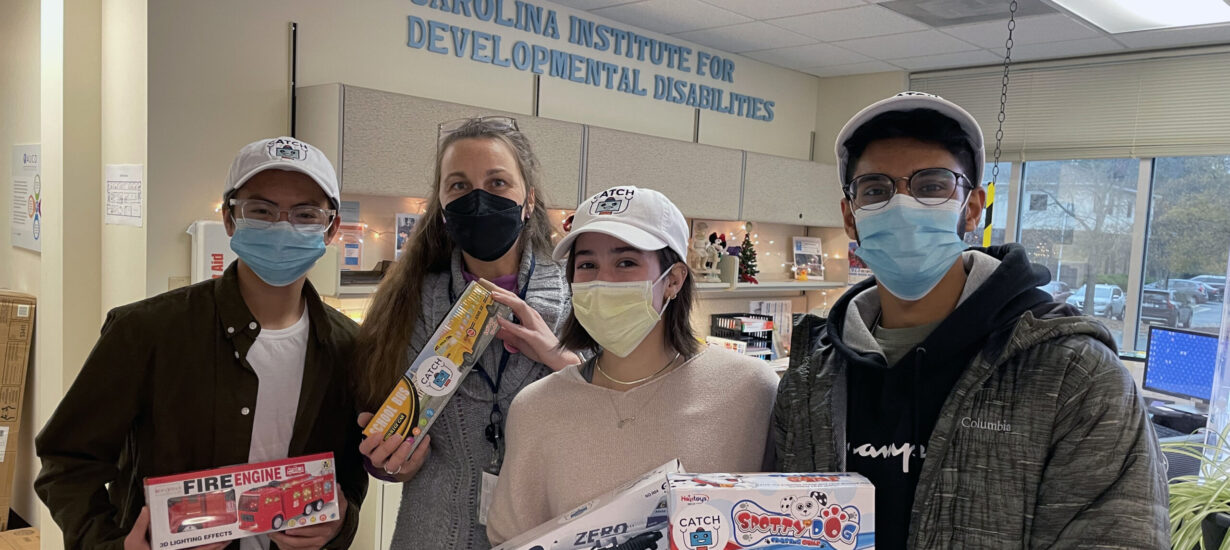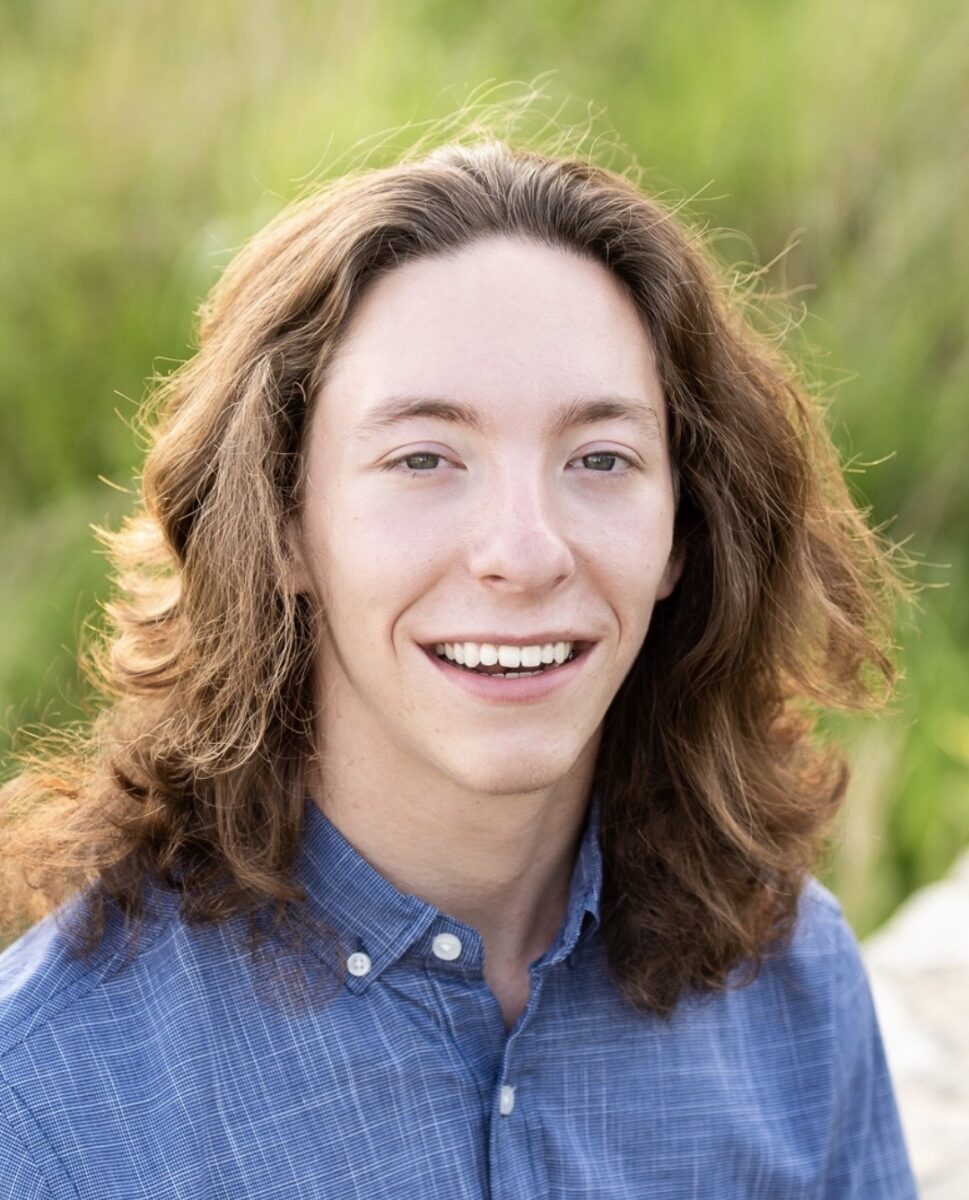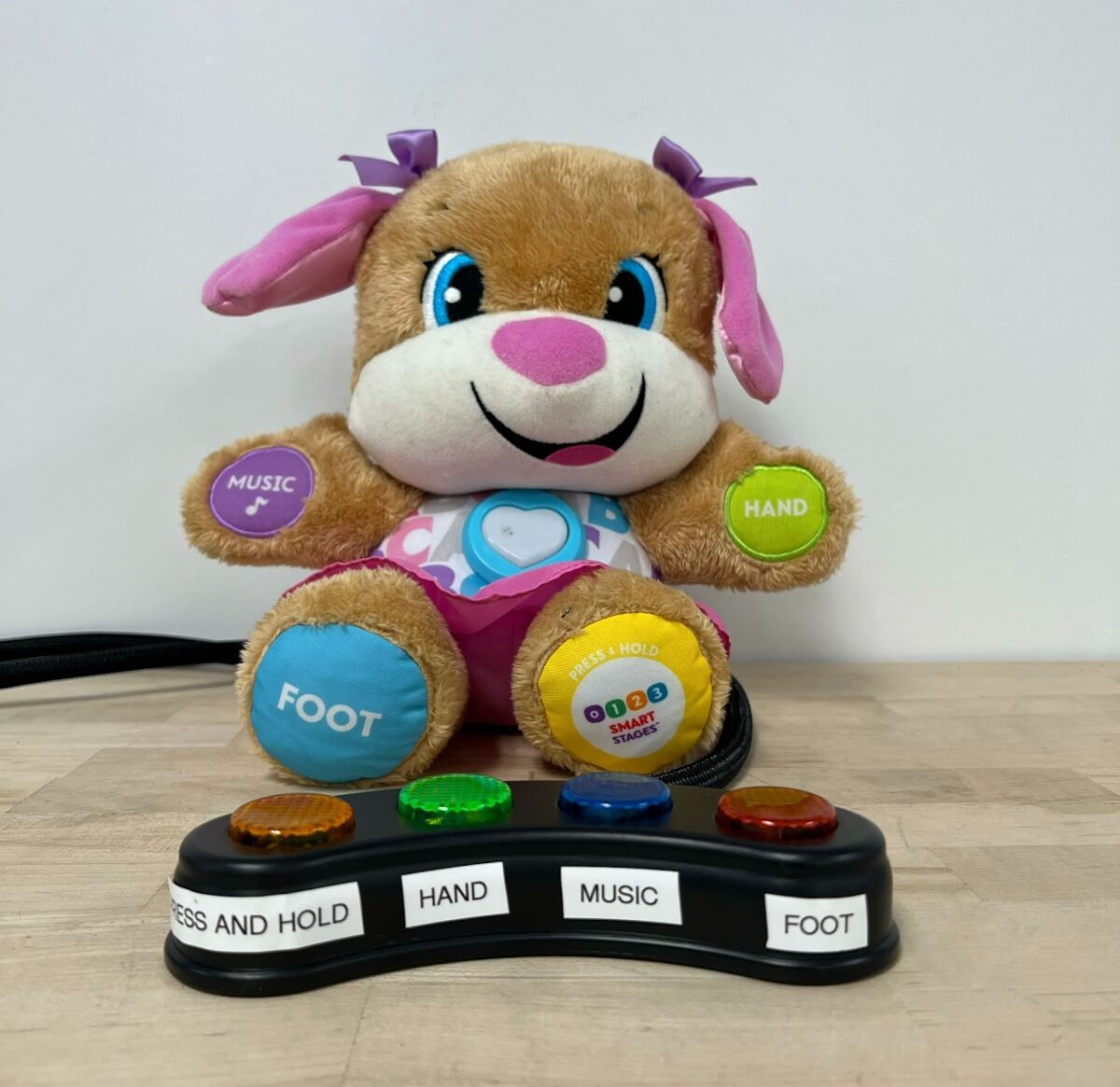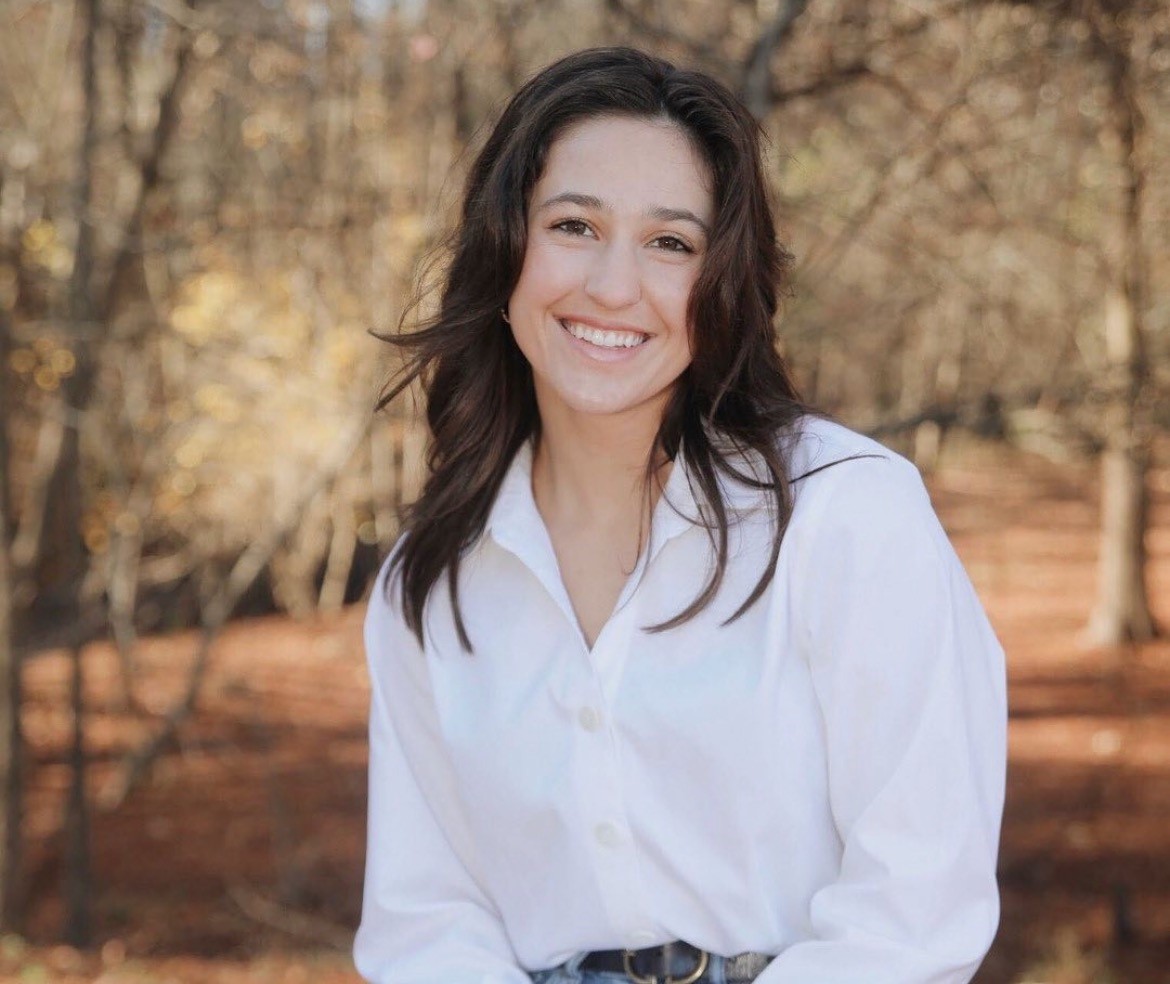Students Re-engineer Toys for Kids With Accessibility Needs


CATCH founder Michael Weaver ’21
UNC students working for an organization that reconfigures toys so children with accessibility needs can more easily play with them distributed the toys to six Triangle and Charlotte locations this month.
The students who modified the toys are members of Carolina Adapts Toys for Children, or CATCH, a nonprofit organization that was founded in 2018 by Michael Weaver ’21, who has cerebral palsy and a bachelor’s degree in biomedical engineering. He said he wanted to give back to others who have experienced similar challenges with trying to play with toys designed with small buttons and controls that most children can easily manipulate but are difficult for kids with accessibility needs.
As a high schooler growing up in Columbus, Ohio, Weaver modified toys alongside students at The Ohio State University and later asked the program director if it was okay to launch a similar initiative when he arrived on campus at UNC.
“There’s research about how playing with toys and having fun are really important in helping children with problem-solving and in their psychological, physical and social development,” Weaver said. “Playing with toys is a small thing, but children with accessibility needs sometimes require more tools to accomplish the same things as other kids.”

CATCH members modify the circuit boards of electronic and mechanical toys to make navigating them easier for children with accessibility needs. Photo: UNC CATCH
CATCH members modify the circuit boards of electronic and mechanical toys to make navigating them easier for children with accessibility needs. For example, instead of pressing a stuffed bear’s paw to make it move or speak, a child presses a much larger button that’s connected to the toy.
“Instead of having a tiny button that a kid in a wheelchair might struggle to reach forward and press, we turn it into a huge button that comes out of the toy on a wire … that can be put on a wheelchair, on a hospital bed or on the floor,” he said. “CATCH is absolutely something I could have benefited from as a kid with fine motor-skills issues.”
Darci Anderson, a senior biomedical engineering major from Greenville and CATCH president, said 35 to 50 students attend weekly meetings, although about 100 students are members of the group. It typically takes 45 minutes to an hour to modify a toy, and students usually take one or two meetings to master the re-engineering skills, she said. Most of the recently donated toys were purchased by CATCH members and modified during the fall semester.
The group this month donated 54 toys to the UNC Center for Rehabilitation Care, the Carolina Institute for Developmental Disabilities, Barton Pond Elementary School in Raleigh, Aversboro Elementary School in Garner, and Atrium Health and Novant Health, both in Charlotte. The group also has donated to a toy library in Georgia.
Sometimes donations are made directly to the children, allowing UNC students to interact with them, but it’s not uncommon for toys to be dropped off at specified locations and later distributed, Anderson said.
“I know getting creative with toys was part of my childhood, and giving other kids that same experience through CATCH is extremely rewarding and hard to put into words,” she said.

CATCH president Darci Anderson
CATCH receives funding through the Carolina Union Activities Board. The funds allow CATCH to donate 10 to 15 toys per semester, but the demand is as high as 100 toys, Weaver said. In 2020, at the advice of UNC Law School students who were participating in a pro bono law clinic run by the University, CATCH members decided to form the nonprofit group CATCH Inc. to serve as a philanthropic body for the student-run group. Weaver is president of CATCH Inc. and also consults for Halma plc, a British global group of safety equipment companies.
“It makes me proud that this idea I had of raising awareness about the disability community and letting these kids have as normal a life as possible is coming to fruition,” Weaver said.
